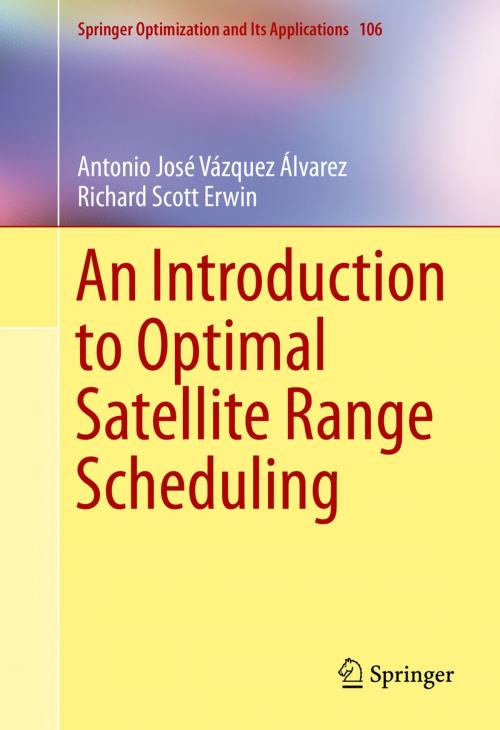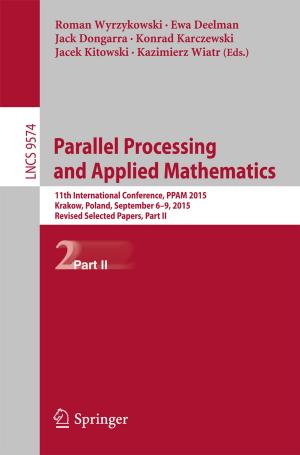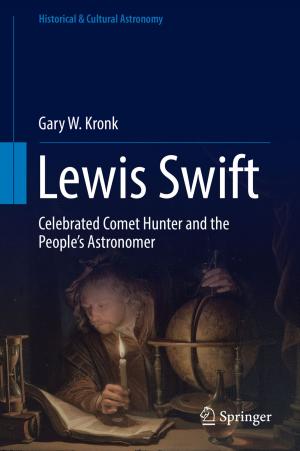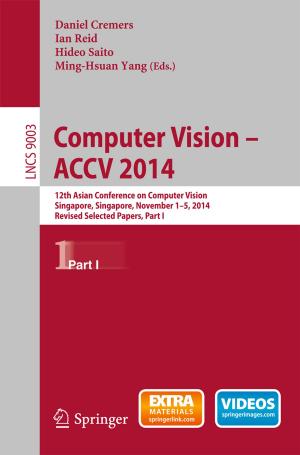An Introduction to Optimal Satellite Range Scheduling
Nonfiction, Science & Nature, Mathematics, Calculus, Business & Finance, Economics, Theory of Economics| Author: | Richard Scott Erwin, Antonio Jose Vazquez Alvarez | ISBN: | 9783319254098 |
| Publisher: | Springer International Publishing | Publication: | December 11, 2015 |
| Imprint: | Springer | Language: | English |
| Author: | Richard Scott Erwin, Antonio Jose Vazquez Alvarez |
| ISBN: | 9783319254098 |
| Publisher: | Springer International Publishing |
| Publication: | December 11, 2015 |
| Imprint: | Springer |
| Language: | English |
The satellite range scheduling (SRS) problem, an important operations research problem in the aerospace industry consisting of allocating tasks among satellites and Earth-bound objects, is examined in this book. SRS principles and solutions are applicable to many areas, including:
- Satellite communications, where tasks are communication intervals between sets of satellites and ground stations
- Earth observation, where tasks are observations of spots on the Earth by satellites
- Sensor scheduling, where tasks are observations of satellites by sensors on the Earth.
This self-contained monograph begins with a structured compendium of the problem and moves on to explain the optimal approach to the solution, which includes aspects from graph theory, set theory, game theory and belief networks. This book is accessible to students, professionals and researchers in a variety of fields, including: operations research, optimization, scheduling theory, dynamic programming and game theory. Taking account of the distributed, stochastic and dynamic variants of the problem, this book presents the optimal solution to the fixed interval SRS problem and how to migrate results into more complex cases. Reference algorithms and traditional algorithms for solving the scheduling problems are provided and compared with examples and simulations in practical scenarios.
The satellite range scheduling (SRS) problem, an important operations research problem in the aerospace industry consisting of allocating tasks among satellites and Earth-bound objects, is examined in this book. SRS principles and solutions are applicable to many areas, including:
- Satellite communications, where tasks are communication intervals between sets of satellites and ground stations
- Earth observation, where tasks are observations of spots on the Earth by satellites
- Sensor scheduling, where tasks are observations of satellites by sensors on the Earth.
This self-contained monograph begins with a structured compendium of the problem and moves on to explain the optimal approach to the solution, which includes aspects from graph theory, set theory, game theory and belief networks. This book is accessible to students, professionals and researchers in a variety of fields, including: operations research, optimization, scheduling theory, dynamic programming and game theory. Taking account of the distributed, stochastic and dynamic variants of the problem, this book presents the optimal solution to the fixed interval SRS problem and how to migrate results into more complex cases. Reference algorithms and traditional algorithms for solving the scheduling problems are provided and compared with examples and simulations in practical scenarios.















